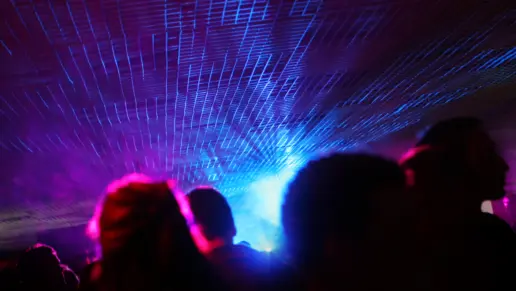N-dimethyltryptamine (DMT) is a drug that many use for its hallucinogenic effects. It has a Schedule I classification. This means that making, selling, owning or distributing DMT is illegal due to its high potential for misuse that can lead to fatal consequences.
What Is DMT?
DMT is a tryptamine derivative found in many plants and animals including humans. It can be made synthetically. The drug produces psychedelic, mind altering effects and changes how neurotransmitters like serotonin function in the brain.
Outside of medical purposes, users primarily take DMT to achieve a high that’s intense but usually lasts less than an hour when injected. The high can last up to five hours if it’s drunk in tea. Other typical methods of ingestion include being smoked in vapes, joints or pipes. Some users melt it into a liquid form to inject it into their veins. Crushing and snorting DMT is also common.
One study from 2020 noted that at least 7.4 million Americans have used hallucinogens such as DMT. Young adults comprised the highest number of users.
DMT also comes in a variety of colors and consistencies. Its purest form is a crystal but it can also be ground into white or yellow powder. If there are other substances mixed in then it can resemble yellow or brown wax.
Street names for DMT tend to be colorful. You’ll find it referenced as Dimitri, Fantasia, Changa, 45 Minute Psychosis and The Rogan. Other nicknames can include Businessman’s Trip or Special, Spirit Molecule and Foxy.
DMT Risks and Dependence
DMT’s drug effects can vary from person to person so it’s crucial to understand its risks when taken. Common adverse effects include bad trips, serotonin syndrome and dependence.
A DMT Bad Trip
Similar to taking other hallucinogenic drugs your experience with DMT may not be a positive one. Some people experience uncomfortable physical and psychological consequences and have a “bad trip.” Symptoms may include:
- Severe anxiety, fear or panic
- Scary hallucinations
- Confusion
- Paranoia
- Worsening mental health symptoms
Other factors may contribute to a bad trip such as DMT interacting negatively with other medications you may be currently taking. DMT may also be impure and buying DMT on the street puts you at risk of the drug being mixed with other drugs like fentanyl or PCP.
Serotonin Syndrome
Misusing DMT can lead to a life-threatening disorder called serotonin syndrome. Serotonin is a neurotransmitter in the brain that influences many bodily functions. DMT can cause too much serotonin alteration in the brain which may lead you to gain a toxic level of serotonin in your central nervous system. Serotonin toxicity symptoms include the following:
- Involuntary muscle spasms
- Excessive sweating
- Involuntary side to side eye movements
- Twitching, tremors or tics
- Agitation
- Muscle stiffness
If you’re taking an antidepressant then you’re already taking a medicine that likely alters how serotonin works in your brain. Some medications suppress serotonin while others trigger the release of the neurotransmitter. Mixing these types of medications with DMT can heighten the impact on your serotonin levels and lead to heightened health risks.
Dependence
DMT is different from many other psychoactive substances in that it does not cause physical withdrawal symptoms when you try to cut back or quit using it altogether. An addiction can still form by misusing DMT drugs over a long period of time. Taking DMT can lead to a negative pattern of use and make you psychologically dependent on the drug.
Many people who habitually use DMT find that they need to use larger amounts over time to feel the desired effects.
Psychological dependence refers to the overwhelming preoccupation with and intense cravings to use DMT. You can get caught in a cycle of having strong urges to use DMT, feeling guilty about using and trying to quit which only leads to even stronger cravings. Being caught in this cycle often interferes with maintaining healthy relationships, being productive at work and meeting family, academic or social obligations.
Side Effects of DMT
There are both mental and physical side effects associated with taking DMT. Some of these side effects put you at risk for major medical complications. The most common DMT drug effects include:
- Depersonalization
- Hallucinations
- Euphoria
- Loss of sense of time
- Increase in blood pressure
- Rapid heart rate
- Rapid eye movements
- Nausea or vomiting
- Dizziness
- Agitation
- Paranoia
Side effects may worsen depending on how you misuse the drug. Some side effects are more likely to occur when taking DMT alongside other illicit or prescription medications such as alcohol, opioids or marijuana.
Can You Overdose on DMT? What Are the Associated Health Risks?
Taking DMT alone is not typically associated with overdose. When taking it you may put yourself in risky situations that lead to accidents, injuries or violence that can result in death. Mixing other drugs with DMT also increases the risk of fatal outcomes and recurrent misuse of DMT leads to short and long term health risks. Examples of short term effects include:
- Lack of coordination
- Seizures
- Heart arrhythmias
- High blood pressure
- Respiratory arrest
- Coma
- Prolonged misuse of DMT can sometimes produce long term irreversible consequences. Examples of long-term effects include:
- Flashbacks
- Sleeping disorders
- Mental health disorders
- Hallucinating persisting perception disorder (HPPD)
- Psychosis
If you or someone you know taking DMT drugs begins having trouble breathing, becomes confused or has abdominal pains or seizures then call for help immediately. These are signs of an overdose that needs emergency medical intervention.
Rehab and Treatment for DMT Abuse
Treatment options for DMT abuse include effective behavioral therapies to help you learn appropriate skills to fight cravings, avoid triggers, take care of your mental and physical health and avoid using DMT in the future.
Licensed mental health and substance abuse professionals can create a unique treatment plan to ensure you receive traditional and alternative therapies to help you stop misusing DMT. If you still have questions about DMT or DMT addiction or if DMT shows up in a drug test then contact a drug treatment center. They will connect you with the right person to answer your questions.
If you’re ready to stop using DMT then be sure to research local treatment centers and connect with a care facility that can provide an assessment and determine which treatment is best for you.
Substance Abuse Rehab Centers Near You
Finding facilities near you…




